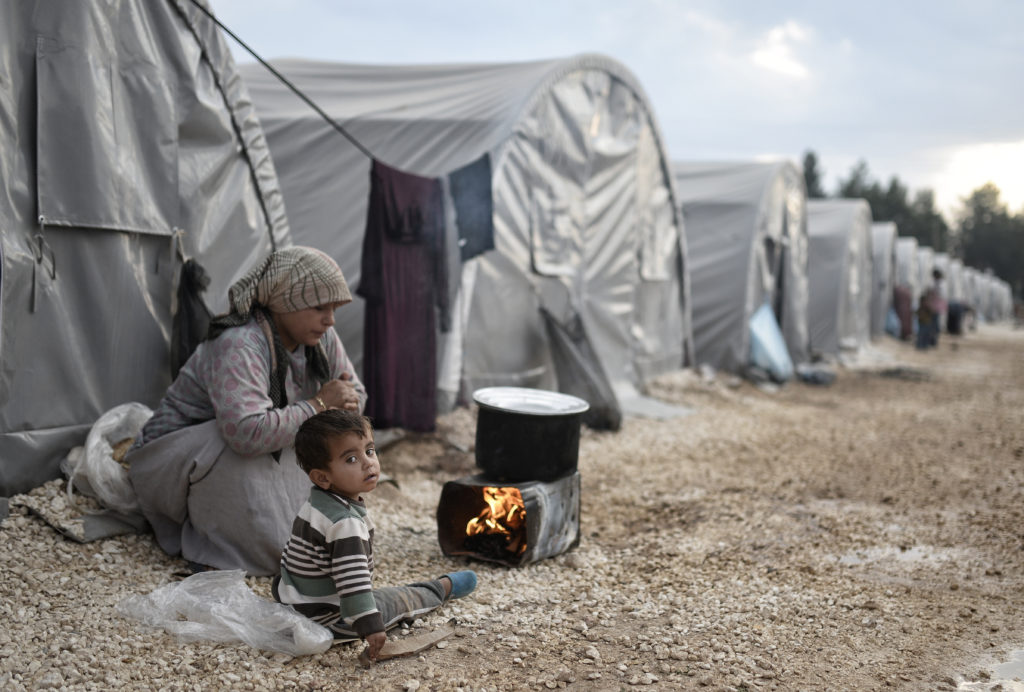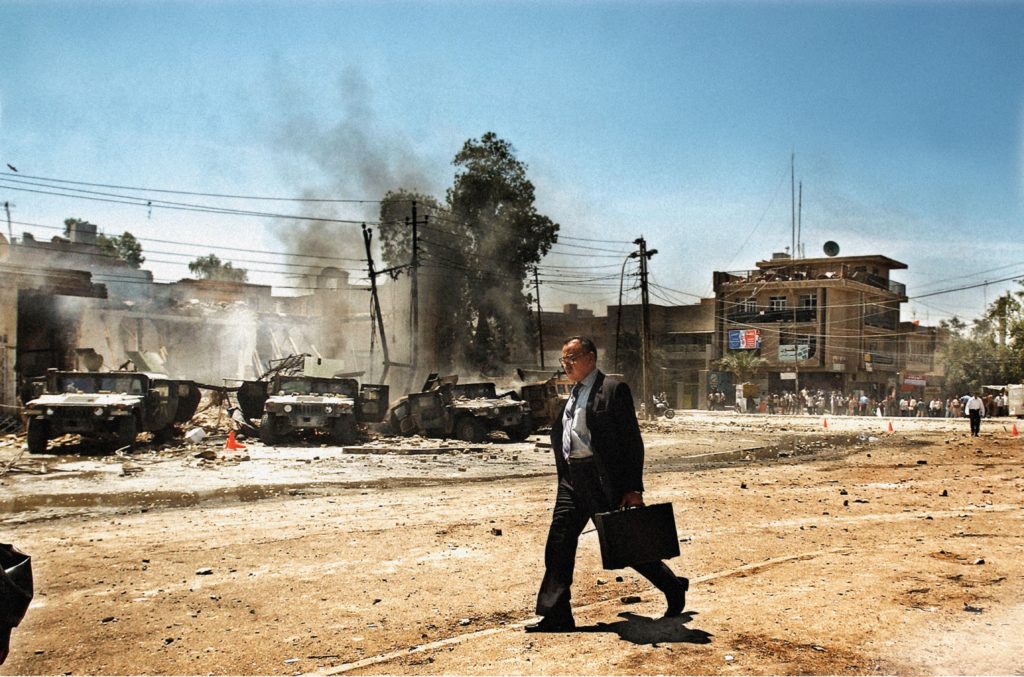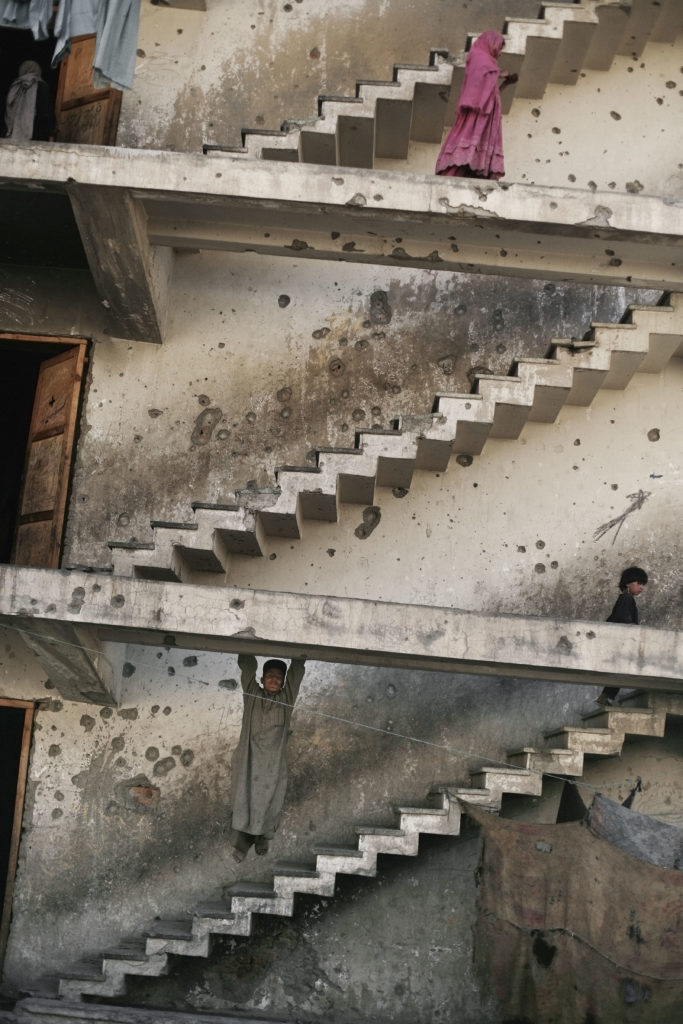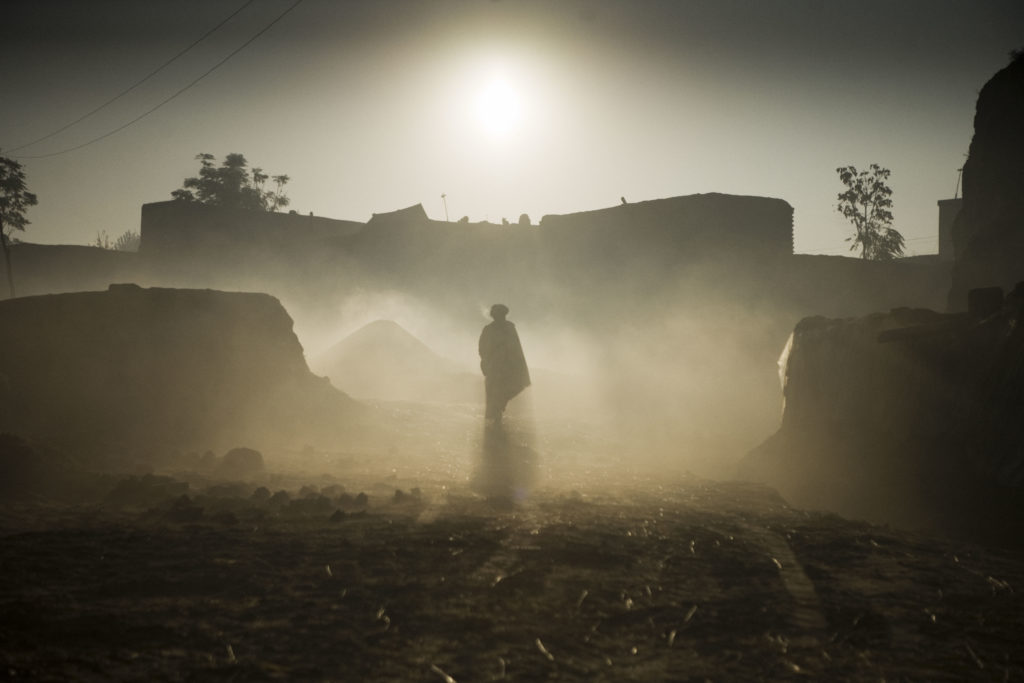Rachel Ziemba is a geo-economic and country risk expert. She runs Ziemba Insights, an advisory firm supports clients in their macroeconomic scenario analysis and policy due diligence. She tracks how governments use their balance sheets to meet economic and political goals and the ways resource wealth is managed. This includes sanctions, export controls as well as sovereign investment and industrial policy.
A broad expert in energy policy, Rachel writes regularly about dynamics across the fossil fuel industry, renewable energy and the development of critical mineral supply chains. She is an expert in how sanctions reshape energy markets and the macro economy of target and sending nations, including the unintended consequences on development.
She is also Senior Advisor, Sanctions at Horizon Engage, Adjunct Senior Fellow at the Center for a New American Security (CNAS) and a non-resident fellow at the Gulf International Forum. She teaches International Political Economy at New York University’s Center for Global Affairs. As part of her commitment to supporting the next generation she serves on the advisory board of the Harriman Foreign Service Fellows, which supports state department interns.
Before founding Ziemba Insights, Rachel served as the head of emerging markets research at Roubini Global Economics, a global macro strategy and country risk firm. In that capacity she co-led the research team, oversaw the emerging market and commodity research including, the firm’s quarterly global economic outlook and scenario production and implementing many of its customized research projects and due diligence exercises for private equity firms.
Rachel regularly serves as an expert commentator in key media outlets including CNBC, Bloomberg, New York Times, Financial Times, and her research has been cited by a range of international institutions including the International Monetary Fund, World Bank and European Central Bank as well as many Academic Institutions. She is the co-author of “Scenarios for Risk Management and Global Investment Strategies” and “Investing in the Modern Age” both with Professor William Ziemba, her late father.
Rachel started her career in international development, working for the Canadian International Development Agency in Egypt, and the International Development Research Centre in Ottawa on development economic issues. She was also a US State Department intern at the Embassy in Paris and the US Consulate in Toronto.
She holds a bachelor’s degree from the University of Chicago with honors, and a Master of Philosophy degree in international relations with a specialization in international political economy from St. Antony’s College, Oxford University (with distinction). She holds the Sustainability and Climate Risk certificate from GARP.
You may also be interested in
Prof. Andrew Boraine is an independent partnering and systems change practitioner with over five decades of experience working in South Africa’s political, local government, urban, economic, and sustainability transformations.
Andrew established and led three collaborative intermediary organisations: the South African Cities Network (SACN), the Cape Town Partnership (CTP), and the Western Cape Economic Development Partnership (EDP).
Andrew has hands-on experience with over 100 multi-stakeholder partnering processes, covering a wide range of issues and sectors, such as water, waste, energy, just transition, mobility and transport, inclusionary housing, food and nutrition, public safety and violence reduction, agriculture and rural development, local economic development, youth employment, homelessness, urban management and place-making, tourism, open data, wetlands conservation, and collective memory work.
Andrew advises a diverse spectrum of local and international partners in government, civil society, community organisations, business, and research and knowledge institutions on how to achieve collaborative impact. Andrew is an adjunct professor at the University of Cape Town’s African Centre for Cities (ACC) and a research fellow at Stellenbosch University’s Centre for Sustainability Transitions (CST).
Andrew was previously Deputy Director General (Local Government) in the Department of Constitutional Development in the mid-1990s. In this capacity, he assisted with the drafting of the local government chapter in the SA Constitution and initiated the first Local Government White Paper process in 1997. Andrew was City Manager of Cape Town from 1997 to 2001.
You may also be interested in
Martin completed his PhD at the Clinton Institute (University College Dublin), where his research focused on the role of the Irish diaspora in the Northern Ireland Peace Process examining areas such as diaspora media, diaspora philanthropy, and diaspora politics. He is the founder of Global Diaspora Insights (GDI).
GDI provides advisory, research, policy, and training services on diaspora engagement through its in-house expertise and network of global experts. In collaboration with partners, GDI has contributed to diaspora engagement in over 50 countries for a variety of public, private, and third sector clients.
Martin currently sits on the Advisory Board of Ireland Reaching Out, which is a volunteer-based, non-profit initiative that connects people of Irish heritage with their place of origin in Ireland and he is an advisor at The Networking Institute. Previously, he was a visiting fellow at the United Nations University in Maastricht (UNU-MERIT) and served a full-term on the Executive Advisory Council of the African Diaspora Network based in Silicon Valley.
Martin has a strong and varied publication record on diaspora engagement including work supported by several governments as well as the African Development Bank Group, African Union, European Union, United Nations, and others. His most recent academic publication was ‘Diaspora Philanthropy: Unlocking New Portals for Diplomacy and Development’ in the first edition of the Routledge International Handbook of Diaspora Diplomacy. He has also participated in or co-chaired organising committees for several flagship global convenings on diaspora engagement including the inaugural Global Diaspora Summit co-hosted by the Government of Ireland and U.N. Agency for Migration in 2022.
You may also be interested in
Professor Gibril Faal is a multi-disciplinary business and development executive. He is the co-founder and director of GK Partners, which specialises in socially responsible business models, sustainable development and programme implementation. He is also a visiting professor in practice at the London School of Economics (LSE) and at the Firoz Lalji Institute for Africa (FLIA); a council member of Carnegie African Diaspora Program; a board member of Giving Tuesday Philanthropy and the African Research Excellence Fund (AREF); and Lead Consultant to the African Union Commission on innovative, development and diaspora finance.
In the early 2000s, Professor Faal was part of the small team of experts that worked on a Department of Trade and Industry project to develop the UK’s social enterprise business support, legal and financing structures. In 2003, he founded RemitAid™ as a mechanism to transform remittances into a sustainable form of development finance. In 2017, he initiated the Migration and Sustainable Development in The Gambia project (MSDG) in partnership with the governments of Switzerland and The Gambia.
Professor Faal has previously served as vice chair of Bond, the network of UK NGOs working on international development; chairman of AFFORD-UK, the pioneering diaspora-development charity; founding director of the Africa-Europe Diaspora Development Platform (ADEPT); and as a magistrate in Her Majesty’s Court and Tribunal Service. He has worked as a technical expert with the United Nations, World Bank, European Union, University of Oxford, and many development institutions and governments across the world. In 2017, he served as overarching expert for the Global Compact for Migration (GCM), and has addressed the UN General Assembly several times. In the past 25 years, he has been appointed to various strategic, development and management boards and panels across the world. In the UK, he has been appointed to several public function roles by the Chancellor of the Exchequer, Secretary of State for International Development, Home Secretary, and the Lord Chancellor. In 2014, Professor Faal was appointed an OBE in the Queen’s Birthday Honours List for services to international development.
You may also be interested in
Adrian Magendzo is an entrepreneur and Professor of Innovation and Entrepreneurship at the University of Kentucky. As an independent international consultant in innovation and entrepreneurship policy, he has worked with various institutions including the Inter-American Development Bank and the World Bank. With IFIT, he has contributed to the Institute’s work on strengthening entrepreneurial ecosystems in The Gambia and Uzbekistan.
Prior to these roles, Adrian served as an economic attaché to the Chilean embassy in Washington, D.C., and as director and professor of the Master in Innovation and Entrepreneurship programme at the Universidad Adolfo Ibanez in Santiago, Chile. He was previously Executive Director of the High Impact Entrepreneurship Policy division at Innova-Corfo, the Chilean government’s innovation and entrepreneurship promotion agency. As an entrepreneur, Adrian has founded several companies in the technology, manufacturing, and food industries.
Adrian has a Master’s of Science in Industrial Engineering from the University of Chile and a Master’s in Technology Commercialisation and Innovation from the McCombs School of Business, University of Texas at Austin.
You may also be interested in
Rachel Scott is Senior Principal of Cabal Group. She focuses on crises and fragile contexts, specialising in financing, donor policy, multilateral business models and ways of working, and humanitarian policy, trends and practice. Rachel brings some 30 years of experience leading multi-cultural teams in international organisations, building partnerships and alliances, analysing and negotiating policy, and designing innovative programs, including over 10 years of experience on the ground in crises in Europe, Asia, Africa and the Middle East. She is passionate about supporting organisations to deliver better results and build trust in today’s challenging, resource-constrained environment.
Rachel has held a number of senior international positions. As Head of the OECD’s work on Crises and Fragility, she led support to the International Network on Conflict and Fragility (INCAF) donor group, and engaged donors, development banks, United Nations organisations, and civil society in setting standards for aid to crises and fragile contexts. This included dedicated work to modernise financing for crises, support peacekeeping transitions, and improve donor policy on humanitarian aid. She also led assessments to determine if United Nations organisations like IOM, UNHCR and WFP are fit for purpose for the crises of today and tomorrow.
Previously, Rachel worked for the United Nations and NGOs, delivering innovative emergency programming for UNICEF, leading field coordination for OCHA in three countries, coordinating cross-UN recovery planning following the Beirut Port Blast, providing expertise to UN leaders on financing in crisis settings, leading UNDP’s repositioning in crisis contexts, and as a senior leader for NGOs delivering programmes in disasters and complex emergency settings.
Rachel, a dual French and New Zealand national, received a Master of International Relations from Victoria University, and a Bachelor of Commerce from the University of Canterbury. She works in both English and French.
You may also be interested in
Baba Jallow is former Executive Secretary of Gambia’s Truth, Reconciliation and Reparations Commission (TRRC). Following the end of that Commission’s mandate in 2022, he served as the inaugural Roger D. Fisher Fellow in Negotiation and Conflict Resolution at Harvard Law School for the 2023 – 2024 academic year.
Baba holds a Ph.D in African History from the University of California (Davis), a Masters in Liberal Studies from Rutgers University (Camden), and a BA in History and Political Science from Fourah Bay College, the University of Sierra Leone. He has taught African and world history at Creighton University in Omaha, Nebraska and La Salle University in Philadelphia, Pennsylvania.
Before going into exile in the United States in September 2000, Baba was a journalist and served as Editor-in-Chief of the Daily Observer and Independent newspapers in his home country of Gambia.
You may also be interested in
Elizabeth Salmón holds a PhD in International Law from the University of Seville and is a full professor of International Law at the Pontifical Catholic University of Peru (PUCP). She is the Special Rapporteur of the United Nations on the human rights situation in the Democratic People’s Republic of Korea. Additionally, she serves as a foreign legal expert to act as Amicus Curiae in the Special Jurisdiction for Peace (JEP) in Colombia.
Professor Salmón is the author of several publications in public international law, international human rights law, international criminal law, international humanitarian law, and transitional justice. She has served as the Executive Director of the Institute of Democracy and Human Rights of the same university (IDEHPUCP), director of the Master’s Program in Human Rights at PUCP, member of the Advisory Committee of the UN Human Rights Council, consultant to the Ministries of Justice and Defense of Peru, as well as to the Peruvian Truth and Reconciliation Commission, the United Nations, and the International Committee of the Red Cross. Additionally, she is a visiting professor and teaches specialized courses at various universities.
You may also be interested in
Dr Asli Ozcelik Olcay is a Senior Lecturer in International Law at the University of Glasgow, where she co-directs the Erasmus Mundus Master in International Law of Global Security, Peace and Development.
Her expertise spans the fields of public international law, international human rights law, international humanitarian law, international criminal law, and comparative constitutional law, with a particular focus on armed conflicts, peacemaking, transitional justice, and post-conflict constitutional reform.
She has been part of collaborative international projects on the role of youth in peace processes, the humanitarian-development-peace nexus, and the relationship between peacemaking and constitutional reform in Colombia, Ukraine and the Philippines. Her research has been funded by the Economic and Social Research Council, the Arts and Humanities Research Council, and the Global Challenges Research Fund.
Asli has consulted and collaborated with international organisations, civil society organisations, and independent international institutions in relation to human rights, peace mediation, and peacebuilding. She is a member of the Advisory Board of the Scottish Human Rights Defender Fellowship.
She holds an LLM in International Law from the University of Cambridge and an LLB from Bilkent University, Turkey. She was awarded her PhD by the University of Glasgow.
Working languages: English and Turkish
You may also be interested in
Galuh Wandita began working on peace and conflict issues in the 1990s in Indonesia, focusing on women’s health and human rights, community rights impacted by mining, with an emphasis on empowering local actors, during the authoritarian New Order regime. Together with a group of East Timorese (then under illegal occupation of Indonesia), she founded a women’s organization, Fokupers, dedicated to stopping violence against women in 1997.
Galuh was a humanitarian worker with Oxfam during the 1999 referendum in East Timor. In 2002-2005 she was appointed Deputy Director of Timor-Leste’s truth commission (CAVR). Together with CAVR’s executive director and senior staff, she designed and managed the fieldwork conducted by the CAVR district teams, and supervised the commission’s work on truth-seeking and victim support. Later on, she drafted key chapters in the commission report, “Chega!” (2005). She returned to Indonesia as a Senior Associate for the International Center for Transitional Justice, working on accountability in Indonesia and Timor-Leste.
In 2012, Galuh co-founded Asia Justice and Rights (AJAR) and continues to lead the organization as its Executive Director, managing programs and staff in Indonesia, Timor-Leste, Bangladesh, Myanmar and other countries. In 2014, she was a co-convener and member of a “citizen’s council” working with a coalition of 50 NGOs across Indonesia in a civil society-led truth-seeking process. She is co-founder and chair for Associacaon Chega Ba Ita, an NGO in Timor-Leste dedicated to supporting women survivors and conducting advocacy on the recommendations of the truth commission. As a member of the Working Group on the Stolen Children, she has led the initiative to find more than 160 survivors of childhood abduction from Timor-Leste (now living in Indonesia), reuniting 80 stolen children with their families.
She was appointed by Timor-Leste’s Prime Minister as a member of the international advisory council on the Centro Nacional Chega (CNC), a follow-up body with a mandate to preserve memory and assist survivors. She also is engaged as an advisor to the Aceh Truth and Reconciliation Commission, working with civil society designing its mandate (2008), supporting key activities in the early period of its establishment (2017), and as member of the writing/editorial team of its final report (forthcoming.)
Galuh holds a Master’s Degree in International Human Rights Law from Oxford University (2006). She completed her Bachelor of Arts in Sociology/Anthropology from Swarthmore College, PA (USA) in 1988.








